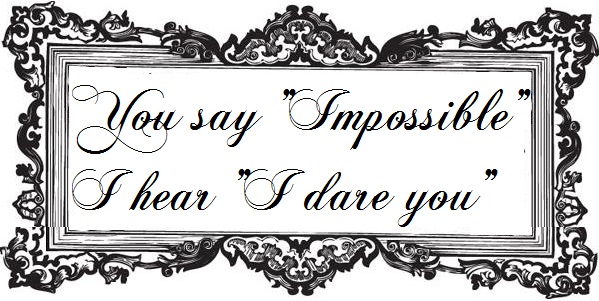Photo by Ivan Bertolazzi from Pexels
Have you ever felt like you were utterly inadequate in doing something and that whatever you were doing couldn’t possibly be what was expected of you? Have you ever felt like you were somehow a fraud and that you were going to be discovered? Or that you do not deserve praises because you really had no idea what you were doing?
You probably have. Like 60 to 70% of people during their lifetime.
Those are usually signs of what is called the imposter syndrome, coined by Psychologists Pauline Rose Clance and Suzanne A. Imes in 1978[i]. It describes different experiences in which someone might feel that they are not deserving of the responsibility or praise they are being given and subsequently develops mechanisms to compensate this feeling.
If you recognized yourself in those questions and descriptions, don’t worry. The first thing you need to remember is that you are not alone.
Neil Gaiman [ii]mentioned struggling with this, despite the countless prizes that he received, Neil Armstrong admitted feeling unworthy of all the praises.
How can those people feel illegitimate when they have done things as impressive as Walking on the moon? And if those people, experts in their fields don’t feel legitimate despite their success, how could we possibly feel legitimate in doing anything?
Well the first step might be to give up on the idea that we need to be experts to do something great.
Often times we give up on projects before even trying because we feel like we ought to know more about it before doing it or because we think we ought to build up our skills before embarking in such an endeavour. But if even masters of their trades feel inadequate, then why wait? Why not give it a try.
The difficulty of the imposter syndrome is that it’s all in your head, and it can be very difficult to acknowledge that your brain might be what’s holding you back and recognising its patterns. But one you have noticed, the only thing you need to do is convince your brain. No big life change, no requirement for money or time. Just good old auto-persuasion. After all, if you managed to persuade yourself that you shouldn’t be here, it means that you have the necessary influence to convince yourself of the opposite too.
In her Ted Talk, Amy Cuddy[iii], a social psychologist suggests that before facing a situation in which you know you’ll feel vulnerable or exposed, you should try to take a power pose for 30 seconds to two minutes. Forcing your body into a specific attitude boosts your hormones and in turn helps you act more confident even in stressful situations. Though it might feel preposterous or ridiculous at first, it is important to keep in mind that you have nothing to lose by trying. Lock yourself in the toilets for 2 minutes, stand up and strike your best pose. Take deep breaths and remember.
Don’t wait to start your dream projects on the premise that you don’t have the skills. Start your big project by planning what skill you need to develop in order to achieve it, research and practice those. Each will be a step not towards your big project but as part as your big project.
Establishing a clear battle plan that encompasses all the steps of the project that initially felt daunting helps realise that it is actually doable and only requires dedication. This in turn allows you to be more realistic about the work and effort you put into it and to be kinder to yourself.
But most importantly, remember that it is okay not to be an expert. If you really feel like an outsider faking that you know what you’re doing, take a step back. Outsiders often provide interesting ideas out of the box.
Embrace your doubt and use it. You feel terrifyingly illegitimate? Ask around and learn to accept constructive criticism. Ask questions, demand pointers, get feedback all through whatever it is that you feel illegitimate. Be vocal about feeling like an outsider.
In a society that praises confidence and extroversion, it is easy to feel inadequate, but the more we’ll talk about it, the least isolated we’ll feel in our struggle to recognise our worth and potential.
Those are usually signs of what is called the imposter syndrome, coined by Psychologists Pauline Rose Clance and Suzanne A. Imes in 1978[i]. It describes different experiences in which someone might feel that they are not deserving of the responsibility or praise they are being given and subsequently develops mechanisms to compensate this feeling.
If you recognized yourself in those questions and descriptions, don’t worry. The first thing you need to remember is that you are not alone.
Neil Gaiman [ii]mentioned struggling with this, despite the countless prizes that he received, Neil Armstrong admitted feeling unworthy of all the praises.
How can those people feel illegitimate when they have done things as impressive as Walking on the moon? And if those people, experts in their fields don’t feel legitimate despite their success, how could we possibly feel legitimate in doing anything?
Well the first step might be to give up on the idea that we need to be experts to do something great.
Often times we give up on projects before even trying because we feel like we ought to know more about it before doing it or because we think we ought to build up our skills before embarking in such an endeavour. But if even masters of their trades feel inadequate, then why wait? Why not give it a try.
The difficulty of the imposter syndrome is that it’s all in your head, and it can be very difficult to acknowledge that your brain might be what’s holding you back and recognising its patterns. But one you have noticed, the only thing you need to do is convince your brain. No big life change, no requirement for money or time. Just good old auto-persuasion. After all, if you managed to persuade yourself that you shouldn’t be here, it means that you have the necessary influence to convince yourself of the opposite too.
In her Ted Talk, Amy Cuddy[iii], a social psychologist suggests that before facing a situation in which you know you’ll feel vulnerable or exposed, you should try to take a power pose for 30 seconds to two minutes. Forcing your body into a specific attitude boosts your hormones and in turn helps you act more confident even in stressful situations. Though it might feel preposterous or ridiculous at first, it is important to keep in mind that you have nothing to lose by trying. Lock yourself in the toilets for 2 minutes, stand up and strike your best pose. Take deep breaths and remember.
Don’t wait to start your dream projects on the premise that you don’t have the skills. Start your big project by planning what skill you need to develop in order to achieve it, research and practice those. Each will be a step not towards your big project but as part as your big project.
Establishing a clear battle plan that encompasses all the steps of the project that initially felt daunting helps realise that it is actually doable and only requires dedication. This in turn allows you to be more realistic about the work and effort you put into it and to be kinder to yourself.
But most importantly, remember that it is okay not to be an expert. If you really feel like an outsider faking that you know what you’re doing, take a step back. Outsiders often provide interesting ideas out of the box.
Embrace your doubt and use it. You feel terrifyingly illegitimate? Ask around and learn to accept constructive criticism. Ask questions, demand pointers, get feedback all through whatever it is that you feel illegitimate. Be vocal about feeling like an outsider.
In a society that praises confidence and extroversion, it is easy to feel inadequate, but the more we’ll talk about it, the least isolated we’ll feel in our struggle to recognise our worth and potential.
[i] The Imposter Phenomenon in High Achieving Women: Dynamics and Therapeutic Intervention Pauline Rose Clance & Suzanne Imes, Georgia State University University Plaza Atlanta, Georgia 30303 https://www.paulineroseclance.com/pdf/ip_high_achieving_women.pdf
[iii] Amy Cuddy : your body language can change who you are, TED Talk October 1st 2012 https://www.youtube.com/watch?v=Ks-_Mh1QhMc&list=PLqU1y-7uPYvTDcq8SK2fCFuSn4HvUyZW1&index=1

